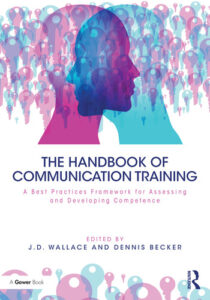Have questions about a blog post? Email the author directly. We love hearing from people.
10 Feb Answering Off the Cuff
 #1 Thinking on your feet
#1 Thinking on your feet
When I meet potential clients, their needs span many areas, but I want to talk about one I find almost everywhere I go. “How can I be better at speaking off the cuff?” Easy! Well, honestly, it is easy, but to explain how it’s easy, let’s talk about what you are asking for.
Speaking off the cuff, thinking on your feet, or any other way you describe it, comes from the idea of speaking with limited notes in a time crunch. You don’t get to take a lot of time to fully plan a response. You must deliver at that moment! So, the way you can be ready for anything is to prepare ahead of time. (more…)
26 Jan Random Reasons Clients Like Virtual Meetings
 As a communication coach working with hundreds of clients virtually, I’ve asked, “Why do you prefer Zoom to a real room?”
As a communication coach working with hundreds of clients virtually, I’ve asked, “Why do you prefer Zoom to a real room?”
Here are my fave fun replies. Add your virtual virtue in the comments below.
- I can eat garlic bread and smelly cheese on a break
- I only have to wash the front part of my hair
- I can wear my shirt with a hole on the back collar
- I am all alone in the bathroom.
- I pound out three emails in thirty- minutes, and no one knows
- I look ten years younger with my ring light-yes!
- I can emit natural body noises without shame.
- I get to wear my cuddly red polka dot pajama bottoms
- I learned to speak without moving my lips to people in my house
- Your contribution?
17 Jan How to Be A Listener-Centric Communicator

The concept of adapting your content and delivery to WHO you are speaking is a worthy objective. However, being able to do it in a poignant and meaningful manner can be an advanced skill, and it will take your workplace communication to the next level.
This article will provide a quick overview of one way in which we help our clients adapt to their listeners. The concept is called Patterns of Reasoning. The normal human brain capacity allows us to function with two basic patterns of reasoning; we use these patterns as the structure for our thoughts and speech. No one is completely one or the other.
11 Jan Choosing a High Quality Speech Coach
 If you are looking for a communication coach to help you with your effectiveness as a communicator, I urge you to check out the new book published by Rutledge. It’s called The Handbook of Communication Training. It features 50 different communication professionals, experts, professors, and practitioners from around the United States who have come together to agree that the best communication coaching and learning happens when your coach has been trained and shows prowess in these seven best practices. They are: (more…)
If you are looking for a communication coach to help you with your effectiveness as a communicator, I urge you to check out the new book published by Rutledge. It’s called The Handbook of Communication Training. It features 50 different communication professionals, experts, professors, and practitioners from around the United States who have come together to agree that the best communication coaching and learning happens when your coach has been trained and shows prowess in these seven best practices. They are: (more…)
15 Dec Can You Learn Presentation and Public Speaking Skills in an Online Course?
 Clients often tell us about an online course they found, or their company has provided, on Public Speaking and Presentation Skills. Then, they ask us what we think of it.
Clients often tell us about an online course they found, or their company has provided, on Public Speaking and Presentation Skills. Then, they ask us what we think of it.
There are two primary considerations:
1. Yes, you can learn some communication skills alone and online.
2. The skills you need must be compatible with online learning.
Number two explains the potential challenges with learning communication skills online. (more…)
26 Nov Why Doesn’t a Power Pose Work for Me?
 Dating back as far as the 1950s, psychologists have connected the idea of your physical position with confidence. For example, people associated the psychology of “walking tall” with confidence. Over the decades, the concept evolved. In addition, movies, television, and social media have projected what confidence looks like. So it’s not much of a surprise when language like “power pose” and “Wonderwoman pose “ have gained new attention to the idea that your physical stance can impact confidence. (more…)
Dating back as far as the 1950s, psychologists have connected the idea of your physical position with confidence. For example, people associated the psychology of “walking tall” with confidence. Over the decades, the concept evolved. In addition, movies, television, and social media have projected what confidence looks like. So it’s not much of a surprise when language like “power pose” and “Wonderwoman pose “ have gained new attention to the idea that your physical stance can impact confidence. (more…)
22 Nov Don’t Talk Too Much!
 If you are a person who tends to give others too much information or go down rabbit holes of multiple topics, you will benefit by mastering an awareness of how much content you can deliver in 60 seconds. In addition, organizing your thoughts and practicing the delivery as a Subject Matter Expert will help you engage your listeners and make a memorable impact. (more…)
If you are a person who tends to give others too much information or go down rabbit holes of multiple topics, you will benefit by mastering an awareness of how much content you can deliver in 60 seconds. In addition, organizing your thoughts and practicing the delivery as a Subject Matter Expert will help you engage your listeners and make a memorable impact. (more…)
8 Nov Managing Body Language in Difficult Communication Settings
 It is important to observe your listeners’ body language as a first step. Whether in the room with you or on video conference, your listeners may exhibit signs of stress because of a lack of clarity or contentious information. What does this look like? The listeners may engage in side conversations. There may be a rumbling in the audience. This tells you, the speaker, that you’ve done something to trigger this reaction and produce negative reactions. (more…)
It is important to observe your listeners’ body language as a first step. Whether in the room with you or on video conference, your listeners may exhibit signs of stress because of a lack of clarity or contentious information. What does this look like? The listeners may engage in side conversations. There may be a rumbling in the audience. This tells you, the speaker, that you’ve done something to trigger this reaction and produce negative reactions. (more…)
19 Oct Are you having conflict and disagreement at work?
 Are you having conflict and disagreement at work?
Are you having conflict and disagreement at work?
Then, follow the advice of the thought leader….and get off the keyboard!
A Japanese client from a well-known American-owned private equity firm in Tokyo recently worked on persuasion for my coaching efforts. We ended up analyzing a Ted Talk from Julia Dhar, a noted Australian speaker on debate, conflict, and persuasion. (more…)
